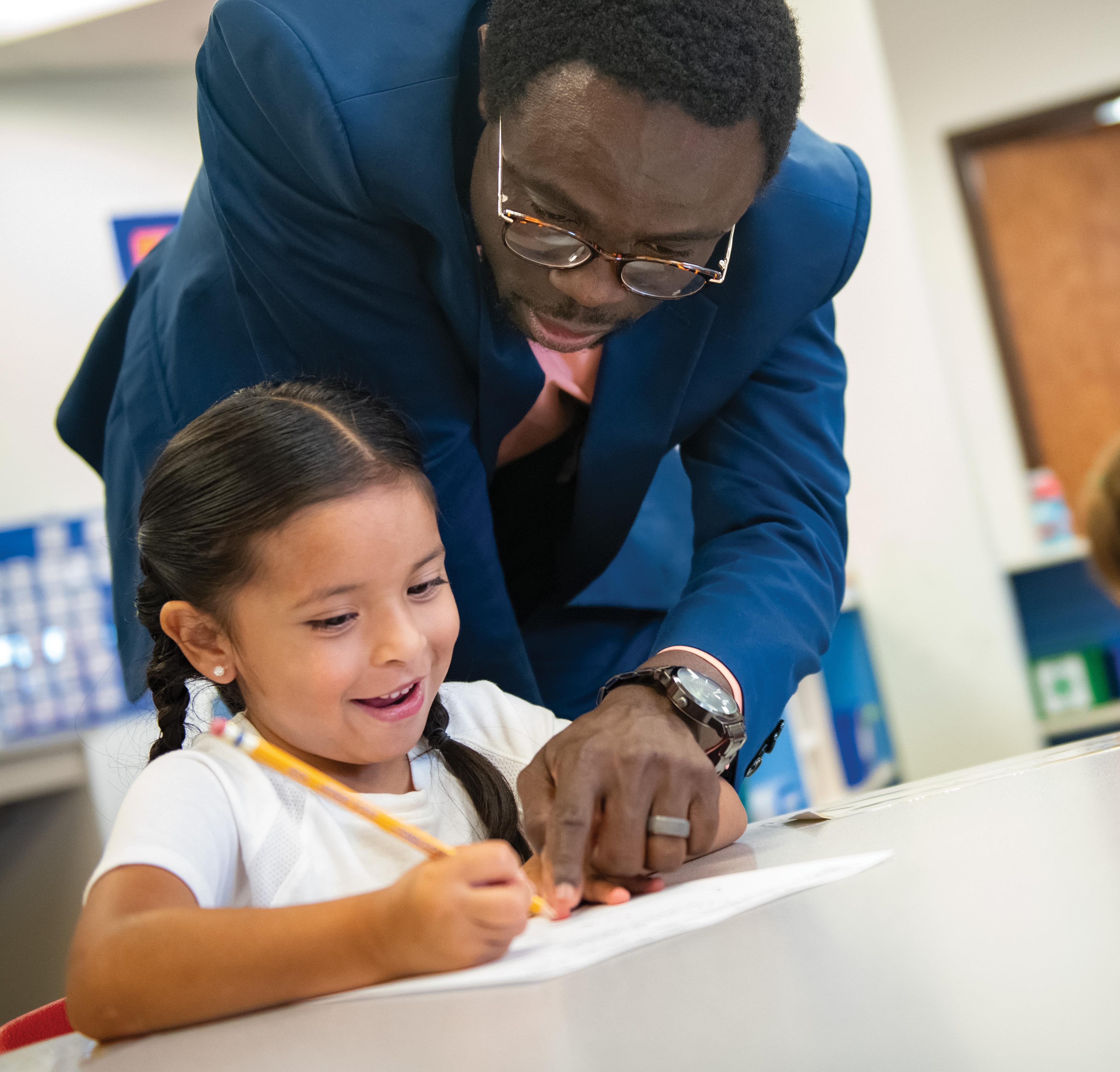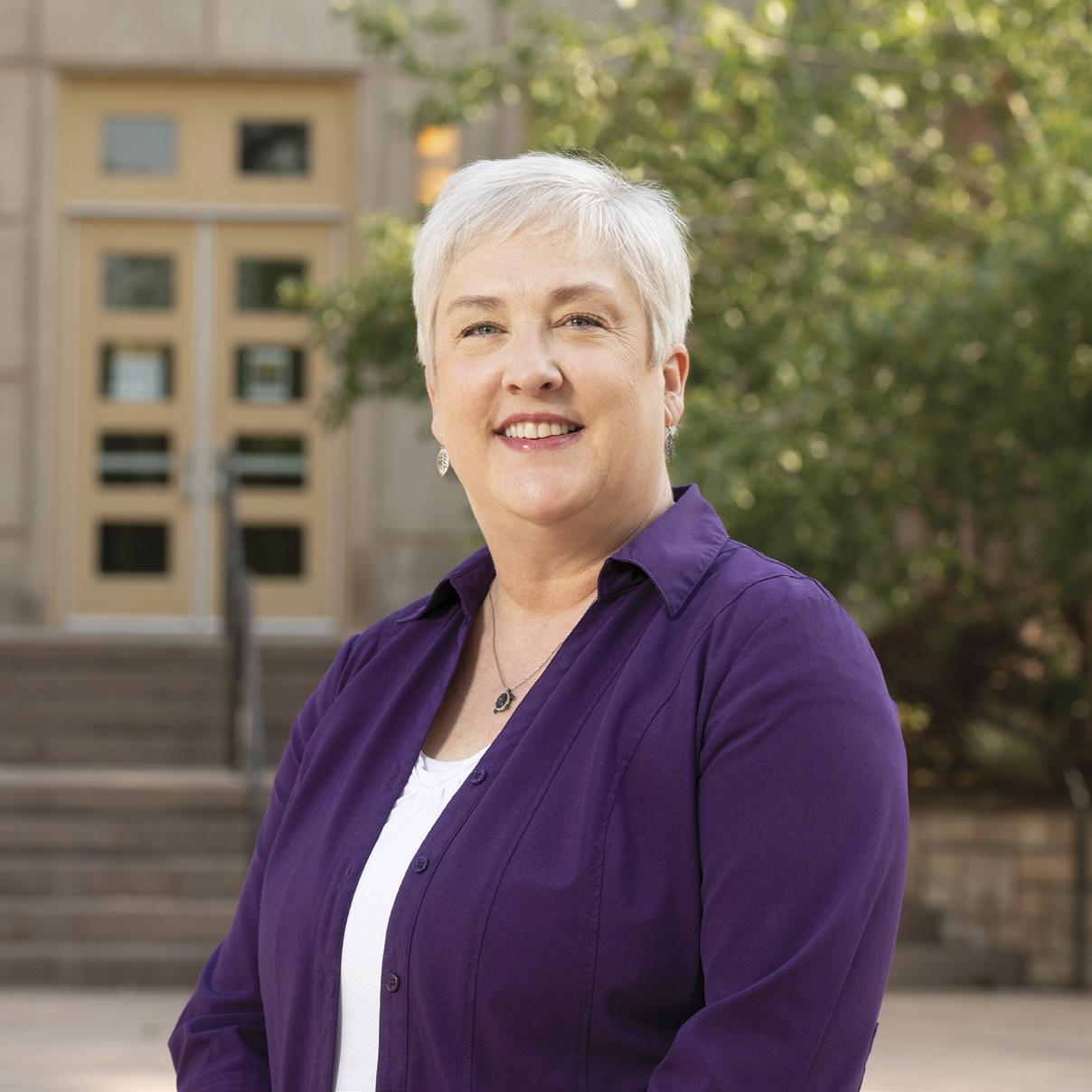
4 minute read
Being Present: Fostering Relationships and Providing Support Online
UW WellSpring counseling is a mental health clinic that provides counseling services to both students and community members. Advanced graduate students who are in training to become licensed professional counselors gain experience providing counseling under the supervision of counseling Ph.D. students and faculty. The facility is currently unable to receive clients in person due to the COVID-19 pandemic and has moved to a tele-mental health counseling format to continue being present for their students and clients.
The team labored to find technology that would allow the counselors and clients to meet and see each other via a secure live video stream. Additionally, the system had to provide a way for other counseling students and supervisors to observe sessions and discuss what they are seeing in real-time while ensuring the privacy of the client.
“Research shows that what helps clients most is the ability to build a relationship with their counselor in which they feel deeply understood, valued and supported. The shift to an online format had us concerned about our ability to maintain a focus on building these relationships,” says Associate Professor Michael Morgan. “I think our team developed systems that function smoothly and create a virtual space that works for our students and clients.”
It is also crucial that students have opportunities to bond with and build close connections with each other. Having a trusting relationship allows them to be honest and vulnerable when discussing and reflecting on each other’s practice. “Fostering these relationships organically when students are physically separated can be difficult to achieve,” says Ph.D. candidate and Clinic Coordinator Kody Roper. “Thankfully, our students are finding ways to build deep relationships with each other. We are seeing them show up 20-30 minutes early for Zoom sessions just to connect and talk.”
Using a secure chat feature during observations, students can discuss what they are seeing during the session, a supervisor can highlight different micro skills a counselor is using, or students can be pulled aside in break-out rooms to further discuss specific topics. The technology has helped replicate the in-person experience students normally have during clinical observations and has provided a virtual space for deep reflection amongst the students.
Both students and faculty had to get up-to-speed on how to run an online clinic. Trainings were provided to teach everyone how to utilize the new technological components. They also learned best practices such as how to set up a space in their homes to conduct sessions and to interpret non-verbal cues from their clients without having a complete picture over a video feed. Another priority was helping students develop strategies to support their own mental health.
“Our program has always emphasized that students need to have a plan to support their own wellness. That effort became even more important now,” says Morgan. “Since counseling is occurring in our students’ homes, we teach strategies to develop and maintain routines and help them find ways separate their emotionally taxing professional careers and personal lives.”
Although tele-mental health counseling is providing a different experience, their training is still rooted in Council for Accreditation of Counseling and Related Educational Programs (CACREP) standards.
These standards ensure the coursework and skill development students experience meets strict standards set by the profession. “We are following a well-researched approach to training counselors. The knowledge and skills we are providing haven’t changed one bit, all that has changed is the format we are using to deliver it,” says Morgan.
“Even though the current experience might be different than normal, our students still have a strong generalist foundation that matches our CACREP standards,” says Roper. “Students in another program experiencing these changes during the pandemic might not have that foundation and stability.”
Relying 100 percent on telemental health counseling during the pandemic isn’t ideal, but is providing
– Kody Ropern
an opportunity for our students and faculty to learn new skills and respond to a crisis situation as it unfolds “Now that we are more experienced with telemental health, we can better prepare our students to offer these services. We would be failing in our duty to the profession, the students and the public if we didn’t continue to embed this training in our program,” says Morgan.
Although things might seem bleak, if we are resilient and compassionate towards each other, we can overcome this challenging time. If your mental wellness has been impacted by the pandemic, visit http://bit.ly/ wellspring-counseling for resources and information on how you can apply for counseling services when the clinic resumes operation in January 2021.
College of Education Department 3374 1000 E. University Avenue Laramie, WY 82071
FOLLOW US ON SOCIAL MEDIA! @WyoCollegeofEd @UWyoCoED @uwyo_ed
#THEWORLDNEEDSMORECOWBOYS #BUCKINGTHESYSTEM #UWYOCOED
Thank You! Thank You!
IN ONLY 24 HOURS DURING UW GIVING DAY, 48 DONORS CONTRIBUTED $12,620 TO THE COLLEGE!
Your gifts make a big impact on our students lives and the state’s education system. Below are just a few examples of the important work we’ve accomplished thanks to the generosity of donors like you.
thank you!
The Dean’s Excellence Fund supported the 4th Annual English as a Second Language Conference, which had over 200 attendees last year.
Contributions to the Literacy Research Center and Clinic support professional development for in-service and preservice teachers, as well as outreach, tutoring, and other forms of literacy support throughout Wyoming.
The Honor a Teacher Scholarship Fund provided over $30,000 in the last three years to freshmen students in the College of Education who are preparing to become teachers.
The CoE Innovation Fund supports innovations underway through the Trustees Education Initiative, which engages in exciting, innovative approaches to support Wyoming students, families, and communities.








